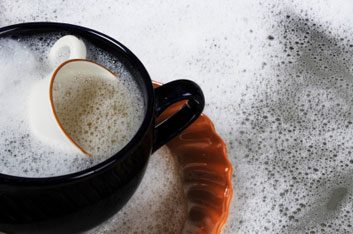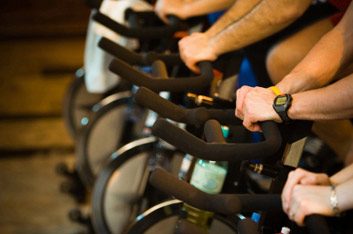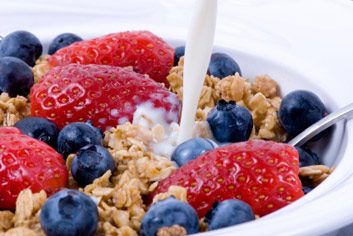
1. Stretching before a workout
Most people stretch before hitting the weights, trail or court thinking that it will reduce their chance of injury and boost performance. There is actually no evidence that long pre-exercise stretching can reduce the likelihood of injury. In fact, excessive pre-exercise stretching may cause a reduction in muscle force and power. “For optimal muscle power there is an optimal number of cross bridges that must be established between the actin and myosin muscle fibres,” says Gerard Recio, a physical trainer at Twist Conditioning in Vancouver. “When you stretch you decrease the interaction.”
Static stretching, where you hold a stretch for a pre-determined amount of time, is best left till after your weight routine.

2. Using antibacterial dish soap
Plain soaps and detergents work just fine for washing dishes and clothes, cleaning your house, or washing your hands. Antibacterial agents in soaps and detergents can lead to the development of antibiotic-resistant bugs in the environment, which can then cause hard-to-treat infections.
Dr. Bonnie Henry, adapted from Soap and Water & Common Sense, courtesy House of Anansi Press

3. Exercising all the time
Many people believe that if some exercise is good, more is better. Keep in mind that the body does not experience muscle growth in the weight room. “Through proper diet and rest, the body adapts and builds up muscle and bone in response to exercise in order to prepare for the next session of physical activity,” says says Gerard Recio, a physical trainer at Twist Conditioning in Vancouver. . Without adequate rest, the body never has a chance to rebuild and regenerate.

4. Consuming artificial sweeteners to lose weight
A study in the August 2008 issue of Obesity found that normal-weight participants who drank more than 21 cans of diet pop containing aspartame per week had over double the risk of becoming overweight than those who used no sweeteners. Sharon Fowler, one of the study’s authors and a faculty associate in clinical epidemiology at the University of Texas Health Science Center at San Antonio, says, “Artificial sweeteners have been associated with increased weight gain in rodents, and in two large studies, daily intake of diet sodas was linked with an increased risk of metabolic syndrome [a group of symptoms related to cardiovascular disease and diabetes].”
Dr. Yoni Freedhoff, medical director of the Bariatric Medical Institute in Ottawa, contends that none of these studies has shown a causal relationship between sweeteners and obesity. Among the theories are a psychological effect-people replace the “saved” calories with high-fat foods-and a biological effect, where sweeteners “trick” the brain so people feel less satiated and consume more calories.

5. Skipping breakfast
You might think it’s an easy calorie save. But the save catches up with you because you’ll likely eat more later in the day, especially at night, says Gina Sunderland, a Winnipeg-based registered dietitian. “Research shows breakfast is the most important meal of the day because it takes the body from a state of resting metabolic rate to actively burning calories,” she says. “It prevents the body from going into a state of starvation and conserving calories.”
Related:
• 7 foods that help prevent heart disease
• 6 foods you thought weren’t healthy but are
• 5 habits you thought weren’t healthy but are
